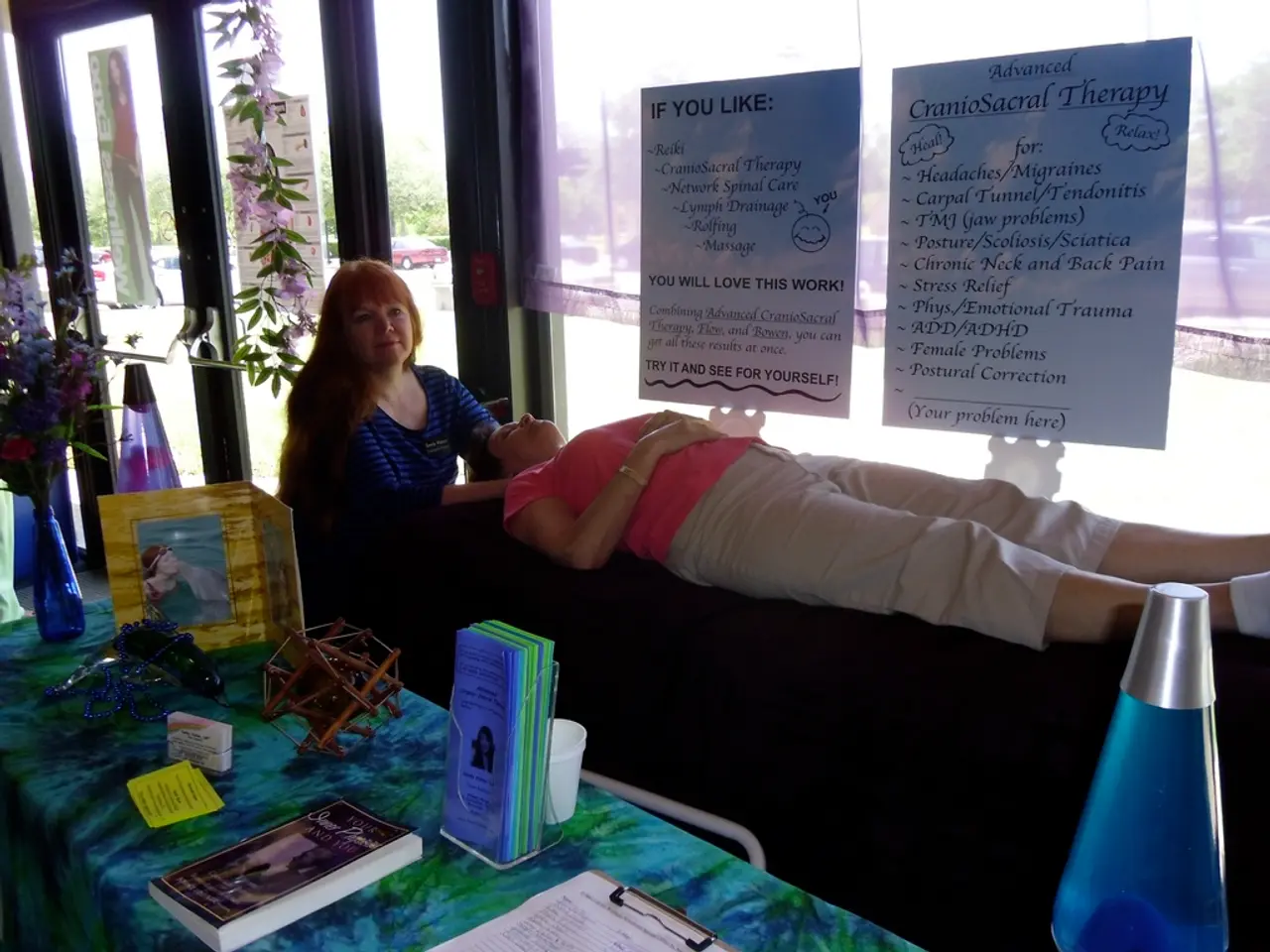Adult Engagement with Positive Psychology Strategies for Enhanced Everyday Experience
In today's fast-paced world, maintaining motivation and resilience can be a challenging task. However, a growing body of research in positive psychology offers valuable insights into fostering our own motivation and well-being.
Positive psychology practices, such as the What Went Well Exercise, gratitude journaling, positive affirmations, mindfulness meditation, perspective shifting, exercise, and self-care practices like yoga and journaling, can effectively boost daily motivation and promote resilience.
The What Went Well Exercise involves spending just 5 minutes daily writing down things that went well during the day. This simple practice shifts our focus towards progress and gratitude, building positive momentum over time.
Gratitude journaling, another effective practice, involves listing three things we are thankful for every day, no matter how small. This exercise redirects our attention from negative to positive experiences and enhances our mood and mental health.
Positive affirmations, regularly repeating short, affirmative statements focusing on our strengths and goals, reinforces a positive self-image and gradually boosts self-confidence and motivation.
Mindfulness meditation, the practice of observing thoughts and feelings without judgment, reduces stress, increases emotional regulation, and supports a resilient mindset when facing challenges.
Perspective shifting, consciously reframing challenges as opportunities for growth and learning rather than failures, encourages perseverance and resilience.
Regular exercise not only improves our physical health but also enhances our mental wellbeing, which in turn supports stress management and resilience.
Self-care practices, such as yoga, journaling, and meditation, nurture positive emotions, reduce burnout, and foster greater overall psychological resilience.
By incorporating these practices into our daily routine, we build a foundation of gratitude, positive mindset, emotional regulation, and self-compassion—all critical for maintaining motivation and bouncing back from adversity effectively.
Organizations like Google have seen improvements in employee happiness and success by implementing positive psychology principles. Even small changes, like starting a gratitude journal and writing down three things we're thankful for each day, can boost our daily motivation.
When life throws us curveballs, we can tap into the power of positive psychology to strengthen our resilience and thrive in the face of challenges. By interpreting stressors as challenges rather than threats, we reduce physiological stress markers and promote quicker recovery from negative events.
Embracing positive psychology can lead to a future where every day brings new opportunities to flourish. Mastering these habits can help develop the motivation needed to achieve our goals and live a more fulfilling life.
[1] Seligman, M. E. P., Steen, T. A., Park, N., & Peterson, C. (2005). Positive psychology progress: Empirical validation of interventions. American Psychologist, 60(5), 410-421. [2] Lyubomirsky, S., Sheldon, K. M., & Schkade, D. V. (2005). Pursuing happiness: The architecture of sustainable change. Review of General Psychology, 9(2), 111-131. [3] Smith, A. L., & Deaton, R. (2008). Happiness for people and planets: A review of the economics of subjective well-being. Journal of Economic Literature, 46(3), 603-662. [4] Ryan, R. M., & Deci, E. L. (2000). Self-determination theory and the facilitation of intrinsic motivation, social development, and well-being. American Psychologist, 55(1), 68-78. [5] Fredrickson, B. L. (2013). Positivity: Groundbreaking Research Reveals How to Embrace the Hidden Strength of Positive Emotions, Overcome Negativity, and Thrive. Simon and Schuster.
- Practicing mindfulness meditation daily can reduce stress, boost self-confidence, and foster a resilient mindset, as suggested by research in positive psychology.
- Embracing a daily positive mindset through practices like the What Went Well Exercise or gratitude journaling can help maintain motivation and promote effective resilience during challenging times.
- Incorporating education and self-development methods like positive affirmations and perspective shifting into one's personal growth strategy can lead to enhanced mental health and overall resilience.
- Science has shown that regular exercise contributes not only to physical health but also to mental wellbeing, acting as an essential foundation for stress management and resilience.
- By adopting health-and-wellness practices such as yoga, journaling, or meditation into daily routines, individuals can cultivate positive emotions, reduce burnout, and foster greater overall psychological resilience.




